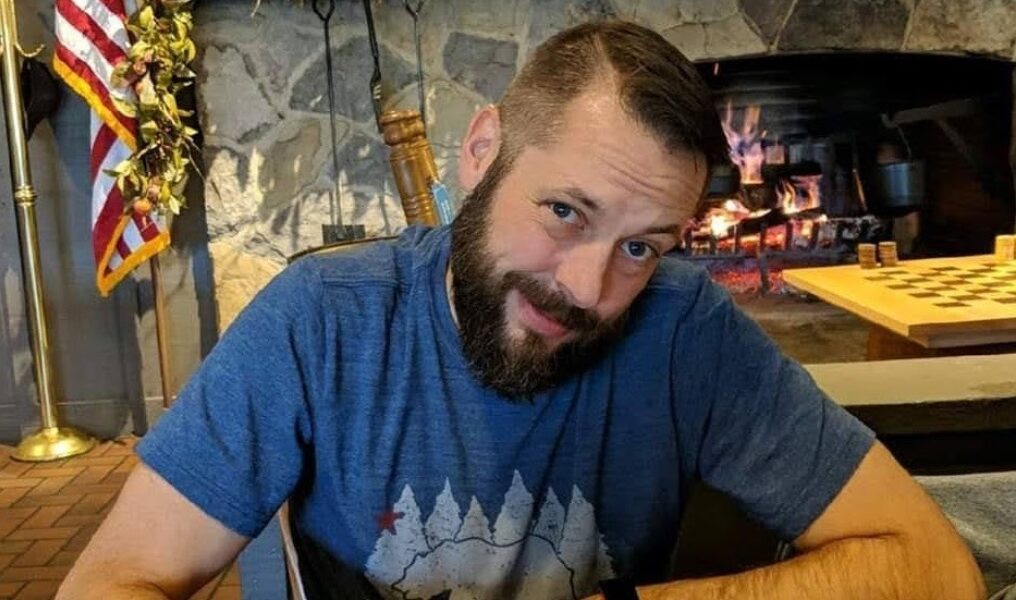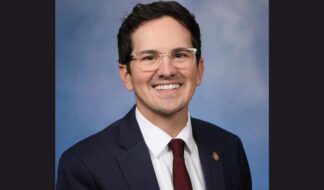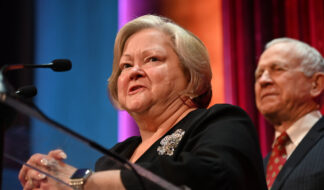Growing up, Russell Ball always knew he wanted to be a teacher.
“Teaching was my first calling,” Ball, 43, told Pride Source recently. “I went to Western Michigan University to be a math and physics teacher. I decided that wasn’t the subject matter I wanted to teach. So I took about five years off from school.”
When Ball returned to college, he earned an undergrad degree and then a master’s degree in adapted physical education. Currently, he is working on a second master’s degree in education leadership.
“I just really like working with kids and teaching them good health behaviors,” he said. “I really like seeing the kids grow and explore on their own and reach their own successes in things that are important to them.”
Despite his passion and dedication to the education field, Ball, who identifies as bisexual, is not sure he’ll ever teach again. He left his position teaching health at Three Rivers Middle School in Southwestern Michigan last week. And he didn’t just quit — he walked off the job in protest of demands by school administrators that he take down the LGBTQ+ Pride Flag that hung in his classroom. His walkout — and the subsequent video he posted announcing why he was leaving — has garnered him national exposure.
But it wasn’t just the flag, though it was undoubtedly the last straw. Truthfully, Ball said he’d begun feeling burnout about five years ago.
He said that when he was teaching in Benton Harbor, a district he describes as “extremely difficult,” he was given multiple pay cuts and experienced a stressful working environment that included teaching
during the pandemic. He was also feeling that he, and his beliefs, were being targeted by conservative parents’ groups in the area. “I didn’t want to be a part of that anymore,” he said.
So after changing jobs and transitioning to the Three Rivers Community Schools district, and then receiving repeated instructions to take down his Pride Flag, Ball said he just couldn’t do it.
“I was livid. It was a combination of being disheartened, and I just couldn’t believe it was happening at the school I was at,” he said. “We had Pride Flags up since the first day I started there. It was almost encouraged.”
Ball recounted that the school’s mission centered on inclusion, acceptance and empathy, yet he was being asked to take down what he thought was a “clear representation” of that mission. Administrators at the school, Ball said, told him the instructions were coming at the behest of the school district’s law firm in response to a legal challenge made by a community member. The firm indicated the flag should be removed at least on a temporary basis, but Ball said there was no clear indication the removal wouldn’t be permanent.
And if the Pride Flag went away, what was going to be next?
“It’s happening all across the country where mostly white, conservative parents are attacking these things,” Ball said. “Pride Flags are being challenged all over the country. That’s one of the big things that ran me off from teaching. It’s all under attack, and you can’t teach the way you want to. We have to teach this white-washed version of history, and it’s not good.”
Teacher burnout aside, it’s the children, said Ball, who suffer the most.
Ball said that part of his training to become a certified sex ed teacher in Michigan included working with LGBTQ+ students, who, he noted, tend to experience more mental health issues, poor attendance, higher suicide rates and higher attempted suicide rates. “The biggest thing that was always taught,” he says, “is that inclusion and visibility matters.” To Ball, that visibility comes from the flag. Removing it from the classroom, he said, felt like it was setting up his students for “future harm.”
“It wasn’t anything I wanted to put my students through,” he explained.
Leaving his students behind was not easy: “I love working with young people. I like seeing them grow into their authentic selves. One of the things I liked about being at Three Rivers was there was a large number of students who identified as trans or part of the LGBTQ+ community.”
Ball said students have confided in him about their pronouns and chosen names, but sometimes ask that they don’t use those indicators in front of their parents. Some students, he explained, “can’t fully embrace themselves,” a thought Ball said is “really sad for these kids.”
“There’s so much support among the student body,” Ball went on. “But it’s really the adults in their lives that are ruining it for them.”
Ball is for now focused on being a full-time dad. He and his wife have a blended family of five. The youngest is 10 months.
“She needs all the attention, so I’m enjoying staying at home and taking care of her and doing some housework,” he said. “Teaching is so demanding. You miss so much family time. I’m glad to have some back.”
When he does go back to work, he envisions working for a non-profit.
“I’ve always considered myself an activist,” he said. “It’s definitely something my wife and I kind of hold as our core values, being that voice and sticking up for people who may not have a voice for themselves.” Ball doesn’t know exactly what he’ll do next, but activism is sure to play a big role. He said he is considering a potential political run, as well, at the state or local level — somewhere he could help create policies aimed at helping young people.

Photo courtesy of Russell Ball
When not teaching, parenting or advocating for others, Ball said his interests are simple.
“I like to run. I like to cycle. I’m an endurance athlete. My ultimate drama is I missed out on the Olympics as a younger kid,” he said. “But there’s the senior Olympics, and I’d like to be competitive in some regard. I enjoy housework and woodworking and building things with my hands.”
Learning to accept himself and his bisexual identity is still something Ball is working on.
Though he came out “five or six years ago,” Ball said acceptance is something he’s struggled with since his late teens. “I grew up in a very conservative, white, middle-class area,” he said. “It wasn’t really something that was allowed to be explored or discovered or even an option. So, it took me a good 20 years to figure it out.”
Initial reaction to his coming out announcement was not good.
“I was in a previous relationship, and they weren’t that open-minded or accepting. I remember being with that person and talking about wanting to come out and be more open about who I was,” he said. “And the woman I was with was against it. She said, ‘What will people think about my kids?’ It really took me back and put me back in my shell for a while. It’s hard when you start hearing that negative sentiment from someone you’re with.
“My current wife is supportive,” Ball continued. “She knows about it. But it’s kind of a challenge when you’re in a relationship, but you still have an attraction to the opposite gender of what your mate is.”
Ball said he and his wife tried experimenting with an open relationship for a time. His wife, he said, was supportive and involved, but the pair found the arrangement wasn’t the best fit for their relationship. “We definitely prefer more of a monogamous relationship,” he explained. “So, it’s a lot of keeping fantasies open, but not acting on them.”
He said it’s key to have a partner that’s supportive and understands that he has attractions and desires, but understanding that the person you’re with is the person you’re with, and that “you’re not going to stray out of that,” he said.
Now, Ball is being seen as a role model. Something he never expected, even after making his video public.
“When I posted to TikTok, it was more for a few students who were following me and would want to know what happened and why I disappeared in the middle of the day,” he said. “I thought I would get a few likes, but the outpouring of support I’ve gotten and people saying I’m a role model is far beyond anything I ever imagined.”











